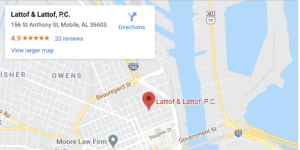What You Need to Know About Nursing Home Bedsores

Many nursing home residents are at an increased risk of suffering bedsores because they are unable to move independently or to change position frequently enough to prevent bedsores from forming. Just because some nursing home residents are more susceptible to bedsores, does not mean that bedsores are inevitable.
Bedsores often occur because of the negligence of nursing home staff.
If your loved one is in a nursing home, then we encourage you to learn more about bedsores, more about how nursing home negligence contributes to bedsores, and more about how to protect your loved one’s rights if she’s been injured.
Table of Contents
The Four Stages of Bedsores
Not all bedsores are the same. Bedsores are often classified in “stages” as follows:
- Stage 1 bedsores. Stage 1 bedsores may be red, darker than surrounding skin, and warm, but there is not an open wound.
- Stage 2 bedsores. Stage 2 bedsores may have an open wound or they may appear as a scrape, blister, or crater. They are usually painful.
- Stage 3 bedsores. At this stage, the sore extends beneath the skin and a crater may form.
- Stage 4 bedsores. At this most serious stage of bedsores, the wound goes deep into the body and could impact the bone, muscle, or tendons.
The risk of serious complications, such as infections, increases as the bedsore progresses.
Was Your Loved One’s Nursing Home Negligent?
Nursing homes have a duty to provide reasonable care for residents. This includes:
- Trying to prevent bedsores from forming by keeping residents in dry clothes, by making sure residents have adequate nutrition, and by regularly changing the position of residents who cannot change positions independently.
- Regularly screening residents for bedsores.
- Getting prompt medical attention for patients who experience bedsores.
Sometimes, these things don’t happen like they should. For example, a nursing home could be negligent if any of the above care doesn’t happen because of:
- A lack of staff training, resulting in staff members who don’t know how to prevent bedsores or how to take care of residents who develop bedsores.
- A lack of staff to properly care for the number of residents.
- Staff who don’t check on residents frequently enough or carefully enough.
If your loved one is hurt, then the time to take action is now.
How to Protect Your Loved One
Your first concern should be to get your loved one the prompt medical care that she needs.
After that, your next step should be to contact an experienced nursing home abuse lawyer who can investigate what happened, gather the necessary evidence, and make persuasive arguments to get your loved one the recovery that she deserves.
Please contact us today to learn more.

